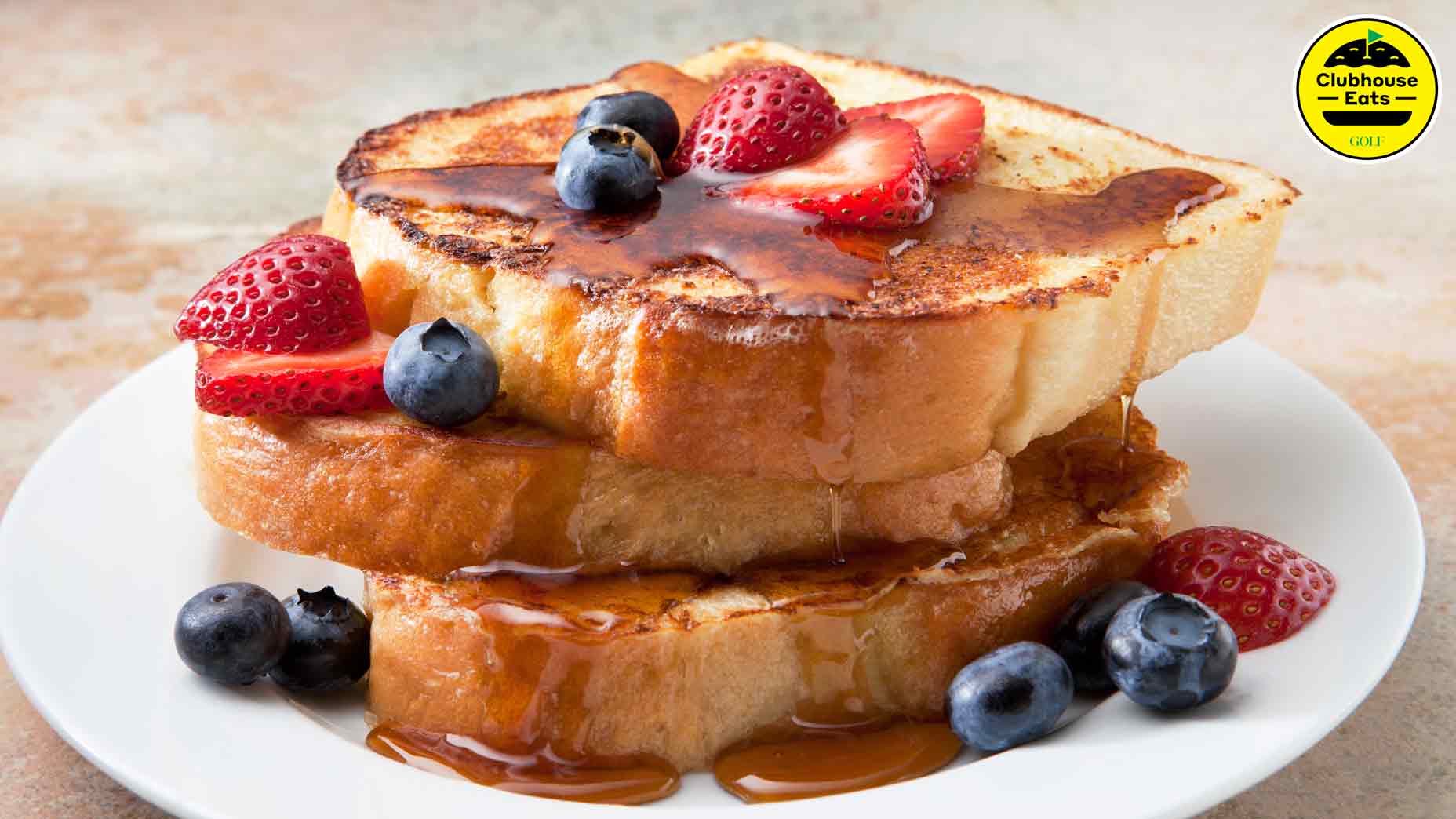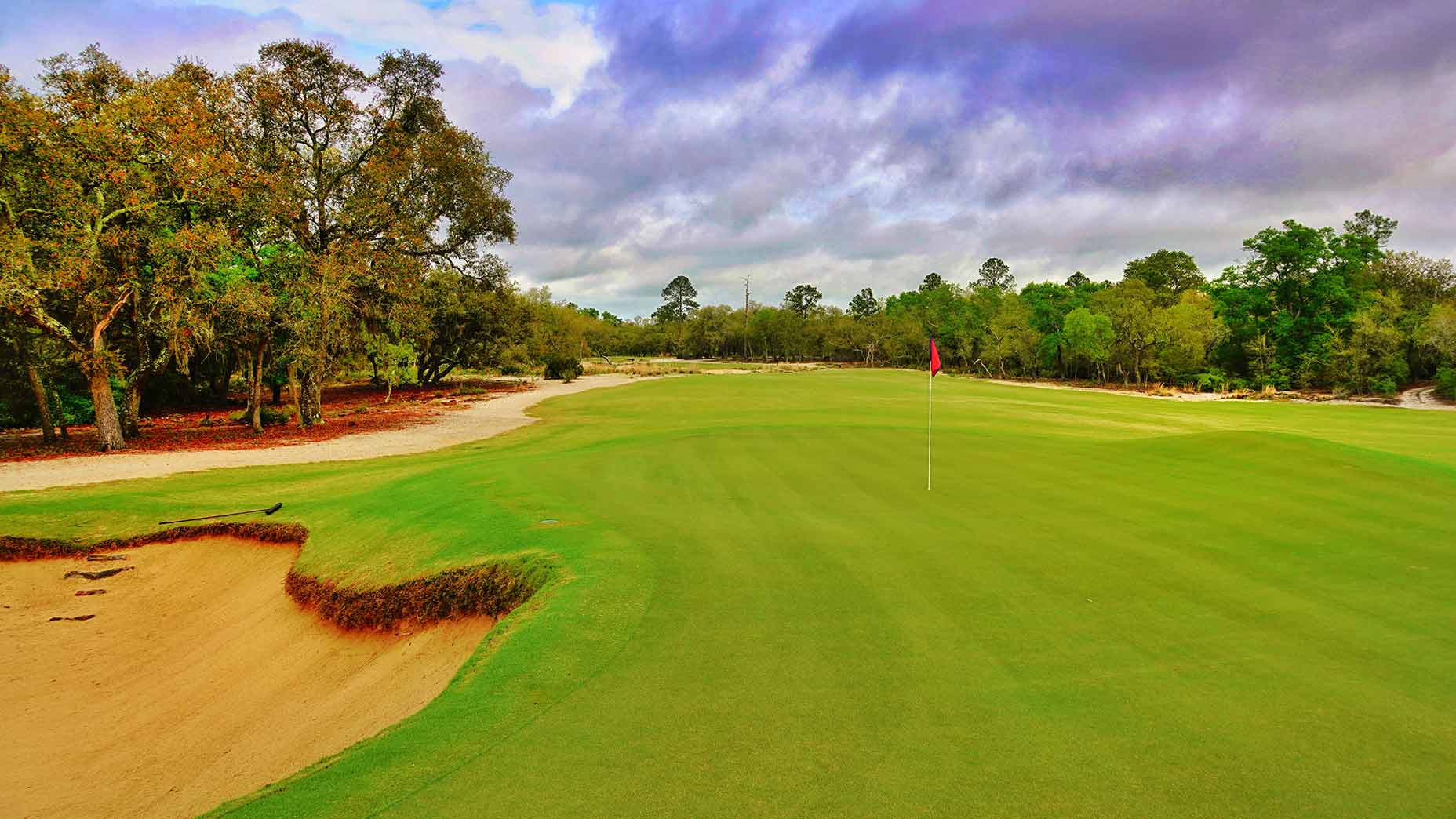
You, too, can create restaurant-quality French toast at home.
Getty Images
Welcome to Clubhouse Eats, where we celebrate the game’s most delectable food and drink. Hope you brought your appetites.
***
Why we call it French toast is hard to figure.
The French don’t call it American toast.
Their term is pain perdu, which means “lost bread” and points to the origins of a dish that was traditionally made by soaking stale bread in eggs and milk.
By any name, it’s a breakfast staple, most often served with a sprinkle of powdered sugar and a drizzle of melted butter and maple syrup, but adaptable to many permutations.
Garret Martindale is executive chef at Sequoyah Country Club, in Oakland, Calif.
We asked him for a rundown of French toast fundamentals, along with his suggestions for creative spins.
The Starchy Basics
It all starts with the right bread. Martindale’s preference is brioche, in 1 1/2-inch slices, with the crust left on to ensure textural contrast. In a pinch, though, he says, a baguette or challah will also do.
The Batter
Martindale describes it as a “custard,” and he recommends the following proportions: 4 eggs; two tablespoons of sweetener (sugar works, though Martindale is partial to lavender honey); 1/4 cup of milk cream, half-and-half, or heavy whipping cream, which the chef recommends for its depth and richness. Cinnamon and vanilla (beans or extra) are common additions.
But don’t hesitate to try a range of herbs and spices. Martindale often uses ground green cardamom, which lends a near-savory warmth of flavor. The zests of fresh citrus also works. Lemon. Orange. Grapefruit. Take your pick. Whatever you do, be sure to stir vigorously to ensure that everything is well-incorporated.
The Soaking
This is where many home cooks go wrong, Martindale says. Be sure to soak the bread thoroughly for 10 to 15 minutes, pressing down gently on the slices so that the egg and milk mixture gets into every nook and cranny.
Browned, not Burned
Another common error is to cook with too much heat. To a non-stick pan, add a pad of unsalted butter and melt it halfway before you add your French toast. You’re looking for a medium, consistent heat that will yield an even cook. About 3-to-5 minutes each side should do it, so that your French toast turns golden brown, not burnt.
The Toppings
The classic combination is butter, powered sugar and cinnamon. But don’t be shy. Try topping things off with a mix Chantilly cream and mascarpone. Or macerated berries. Or chocolate sauce. Or Nutella. Or even a pinch of Cayenne pepper as a piquant counterpoint. But don’t stop there.
Martindale also loves these other forms of French toast:
-Goat cheese and bacon French toast
-Peanut butter and Jelly French toast
-Coconut French toast
-Ham and Cheese French toast
The options are limited only by your imagination.










